|
Brought to you by Dairy's Professional Development Organization®
|
|
Opportunities to learn...
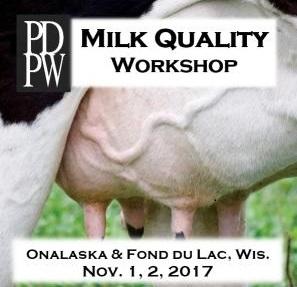
MANAGE MASTITIS MORE EFFECTIVELY
with insights learned at the PDPW Milk Quality Workshop scheduled for Nov. 1 and 2 in Onalaska, Wis., and Fond du Lac, Wis. Workshop presenters Dr. Pamela Ruegg, UW-Madison, and Dr. Katie Mrdutt, Food Armor Foundation, and veterinarian Dr. David Rhoda will share strategies to manage mastitis and spot trends within dairy herds to boost quality and production. Farmers will come away with practical tips to improve cow health and milk quality. To learn more about the program and
to register
c
lick here
or contact PDPW at 800-947-7379.
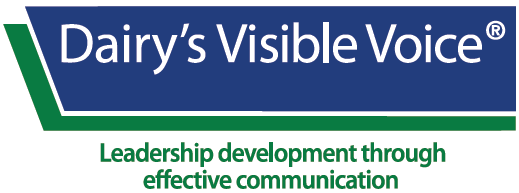
DAIRY'S VISIBLE VOICE SESSIONS BEGIN DEC 13 & 14.
Position your business for success and amplify the value you bring to your community by completing "Dairy's Visible Voice" 5-part training series this winter. Two series, running simultaneously, will be held at Pagels Ponderosa Dairy, Kewaunee, Wis. (Kewaunee County) and the second series held at Boon Farms, Greenwood, Wis. (Clark County). The first one-day training will focus on media relation skills. Sign up for one day or all five. The series begins Dec 13 for the Kewaunee County Series and Dec 14 for the Clark County Series, both running from 9 a.m. to 5 p.m. Registration is reserved exclusively for dairy farmers. Review the
series details
and register today.
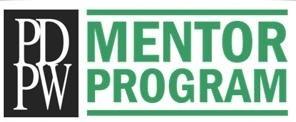 DEADLINE FOR PDPW MENTOR PROGRAM APPLICATIONS IS NOVEMBER 10.
For students with an interest in dairy production or the dairy industry, the PDPW Mentor Program is the perfect way to get hands-on experiences with leading dairy farmers, grow your network and share ideas. Submit applications by November 10 and find more information about the program and process,
visiting our website
or contacting us by email. DEADLINE FOR PDPW MENTOR PROGRAM APPLICATIONS IS NOVEMBER 10.
For students with an interest in dairy production or the dairy industry, the PDPW Mentor Program is the perfect way to get hands-on experiences with leading dairy farmers, grow your network and share ideas. Submit applications by November 10 and find more information about the program and process,
visiting our website
or contacting us by email.
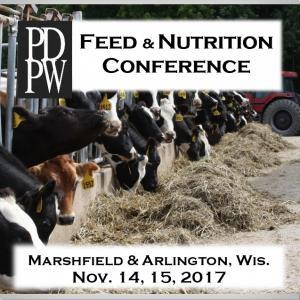
FEED & NUTRITION CONFERENCE SET FOR NOVEMBER 14 AND 15.
Join Dr. John Geiser, Rock River Laboratory; Dr. David Combs, UW-Madison; and Dr. Paul Kononoff, University of Nebraska-Lincoln, along with other dairy owners, feed managers and industry professionals for a day focused on improving feed management and quality on dairy farms. Presentations will focus on mold and mycotoxin management, unlocking potential of newer forage varieties, byproduct value and more. Learn more and r
egister
here
or contact PDPW at 800-947-7379.
 JOIN THE CONVERSATION AT PDPW FOOD & POLICY SUMMIT.
The two-day collaborative event will work toward a more proactive and prepared dairy meat and milk sector with dairy farmers, industry and food system leaders. Join innovative dairy farm owners, industry CEOs, food system department executive and key decision makers and thought-leaders on Dec. 6-7 at the Sheraton Hotel in Madison, Wis. One and two-day registrations are available. Learn more or register
here
or call PDPW at 800-947-7379 with questions. JOIN THE CONVERSATION AT PDPW FOOD & POLICY SUMMIT.
The two-day collaborative event will work toward a more proactive and prepared dairy meat and milk sector with dairy farmers, industry and food system leaders. Join innovative dairy farm owners, industry CEOs, food system department executive and key decision makers and thought-leaders on Dec. 6-7 at the Sheraton Hotel in Madison, Wis. One and two-day registrations are available. Learn more or register
here
or call PDPW at 800-947-7379 with questions.

MARK YOUR CALENDAR FOR 2018 MANAGERS ACADEMY.
This executive-level training will be held in Orlando, Fla. January 16-18, 2018. Attendees will learn from Walt Disney World Resort's former Executive Vice President Lee Cockerell and Dr. David Kohl, professor emeritus in the agricultural and applied economics department at Virginia Tech. Cockerell and Kohl will share secrets of hiring right and training employees to have the right attitude.The event will include a tour of a Disney park so attendees can discover how the Disney culture, protocols and systems directly relate to dairying.
Participants will also hear from Jim Sleper, CEO of Southeast Milk, Inc. as he shares how they partner with large fluid processors such as Publix Super Markets, Dean Foods and Borden's. In addition, attendees will tour the Iron Bridge Regional Water Reclamation Facility in the Orlando Easterly Wetlands and learn how the facility 'polishes' highly treated water before discharging it into the St. Johns River system. To register and for more details, call 800-947-7379 or
click
here
.
 THE 2017-18 PDPW EDUCATIONAL PROGRAMMING AND EVENT CALENDAR
is now available. Check out the full list of leading-edge programming and networking opportunities and mark key event dates on your calendar now.
Click here
to download a pdf version of the calendar. THE 2017-18 PDPW EDUCATIONAL PROGRAMMING AND EVENT CALENDAR
is now available. Check out the full list of leading-edge programming and networking opportunities and mark key event dates on your calendar now.
Click here
to download a pdf version of the calendar.
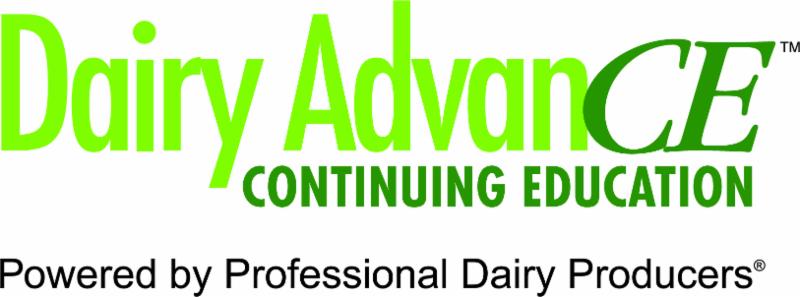
|
For your dairy...
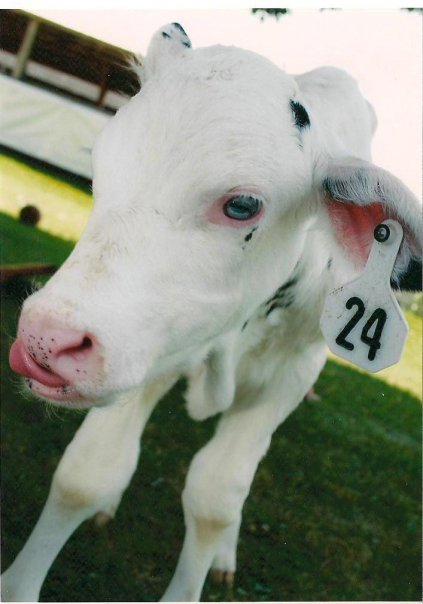 BEST PRACTICES TO MANAGE PAIN IN CAUSTIC PASTE DISBUDDING
was the focus of a recent study in the Journal of Dairy Science. Seventy-two Holstein-Friesian calves housed in groups with an automated milk feeder were enrolled into groups based on age and received one of four treatments: 1) a placebo paste and a saline cornual block; 2) a novel caustic paste containing lidocaine and prilocaine, and a saline cornual block; 3) a commercial caustic paste and a lidocaine cornual nerve block; and 4) a commercial caustic paste and a saline cornual block. The study showed that caustic paste disbudding appears to be acutely painful for at least 180 minutes, and authors recommend calves disbudded with caustic paste receive local anesthetic with a cornual nerve block as well as a nonsteroidal anti-inflammatory drug to mitigate acute pain. Read more
here
. BEST PRACTICES TO MANAGE PAIN IN CAUSTIC PASTE DISBUDDING
was the focus of a recent study in the Journal of Dairy Science. Seventy-two Holstein-Friesian calves housed in groups with an automated milk feeder were enrolled into groups based on age and received one of four treatments: 1) a placebo paste and a saline cornual block; 2) a novel caustic paste containing lidocaine and prilocaine, and a saline cornual block; 3) a commercial caustic paste and a lidocaine cornual nerve block; and 4) a commercial caustic paste and a saline cornual block. The study showed that caustic paste disbudding appears to be acutely painful for at least 180 minutes, and authors recommend calves disbudded with caustic paste receive local anesthetic with a cornual nerve block as well as a nonsteroidal anti-inflammatory drug to mitigate acute pain. Read more
here
.
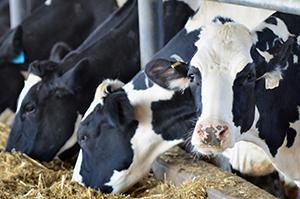 CAN METABOLIC PROFILES AND HORMONE TRAITS HELP SELECT FOR FEED EFFICIENCY?
Researchers asked this question in a study published in the Journal of Dairy Science. They recorded dry matter intake (DMI) on 970 Holsteins from 11 commercial farms in Pennsylvania and derived four feed-utilization traits (dry matter intake, dry matter efficiency, crude protein efficiency and residual feed intake). Up to 631 blood samples from 393 cows from 0 to 60 days in milk were evaluated for blood plasma concentrations of glucose, nonesterified fatty acids (NEFA), β-hydroxybutyrate (BHB), creatinine, urea, growth hormone (GH), 3,5,3-triiodothyronine (T3), and other parameters. Cows with higher genetic merit for yield had significantly higher concentrations of GH, NEFA (milk and protein yield), and BHB (fat yield) from 31 to 60 days in milk, but lower concentrations of glucose from 0 to 30 days, and T3. In addition, the characteristics associated with enhanced feed efficiency (higher GH and lower glucose and T3 concentrations) were unfavorably associated with fertility, as indicated by elevated days open. Researchers noted that considering metabolic profiles when evaluating feed efficiency might be a way for producers to maintain health and reproductive fitness when selecting for feed efficiency. Learn more
here
. CAN METABOLIC PROFILES AND HORMONE TRAITS HELP SELECT FOR FEED EFFICIENCY?
Researchers asked this question in a study published in the Journal of Dairy Science. They recorded dry matter intake (DMI) on 970 Holsteins from 11 commercial farms in Pennsylvania and derived four feed-utilization traits (dry matter intake, dry matter efficiency, crude protein efficiency and residual feed intake). Up to 631 blood samples from 393 cows from 0 to 60 days in milk were evaluated for blood plasma concentrations of glucose, nonesterified fatty acids (NEFA), β-hydroxybutyrate (BHB), creatinine, urea, growth hormone (GH), 3,5,3-triiodothyronine (T3), and other parameters. Cows with higher genetic merit for yield had significantly higher concentrations of GH, NEFA (milk and protein yield), and BHB (fat yield) from 31 to 60 days in milk, but lower concentrations of glucose from 0 to 30 days, and T3. In addition, the characteristics associated with enhanced feed efficiency (higher GH and lower glucose and T3 concentrations) were unfavorably associated with fertility, as indicated by elevated days open. Researchers noted that considering metabolic profiles when evaluating feed efficiency might be a way for producers to maintain health and reproductive fitness when selecting for feed efficiency. Learn more
here
.
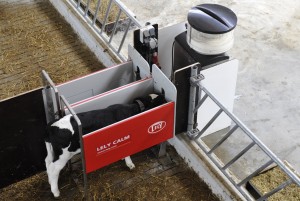 FUNDAMENTAL CALF CARE PRACTICES ARE STILL KEY
in managing automated calf feeding systems, according to research published in the Journal of Dairy Science. Researchers reviewed farm records for preweaned dairy calves housed in groups with automated feeding systems from 26 farms in the Upper Midwest. The overall median annual mortality rate was 2.6% and 57% of farms reported mortality rates below 3% per year. Farms that disinfected the navels of newborn calves had lower mortality rate than farms that did not. The number of cows on site was negatively associated with mortality rate, whereas the age range in calf groups was positively associated. Analysis of a number of factors from coliform bacteria count in feeder tube milk samples to age and group size of calf groups led researchers to conclude that "although automated feeding systems can achieve mortality rates below the US average, improvements are needed in fundamental calf care practices, such as colostrum management and preventing bacterial contamination of the liquid diet and the calf environment." Read more
here
. FUNDAMENTAL CALF CARE PRACTICES ARE STILL KEY
in managing automated calf feeding systems, according to research published in the Journal of Dairy Science. Researchers reviewed farm records for preweaned dairy calves housed in groups with automated feeding systems from 26 farms in the Upper Midwest. The overall median annual mortality rate was 2.6% and 57% of farms reported mortality rates below 3% per year. Farms that disinfected the navels of newborn calves had lower mortality rate than farms that did not. The number of cows on site was negatively associated with mortality rate, whereas the age range in calf groups was positively associated. Analysis of a number of factors from coliform bacteria count in feeder tube milk samples to age and group size of calf groups led researchers to conclude that "although automated feeding systems can achieve mortality rates below the US average, improvements are needed in fundamental calf care practices, such as colostrum management and preventing bacterial contamination of the liquid diet and the calf environment." Read more
here
.
|
 CONVENIENCE STORES ARE EXPANDING FOOD AND GROCERY OPTIONS,
taking on the role corner grocery stores played in years gone by. An article in the Green Bay Press Gazette highlighted the trend in Wisconsin and across the country that convenience stores' share of consumers' grocery-purchase market share has increased to 16% in 2016 from 8% in 2008. As convenience stores increase their prepared and ready-to-eat food selections and increase grocery options, they offer a quicker and more convenient option to the larger superstores such as Walmart or Costco. Read the full article
here
. CONVENIENCE STORES ARE EXPANDING FOOD AND GROCERY OPTIONS,
taking on the role corner grocery stores played in years gone by. An article in the Green Bay Press Gazette highlighted the trend in Wisconsin and across the country that convenience stores' share of consumers' grocery-purchase market share has increased to 16% in 2016 from 8% in 2008. As convenience stores increase their prepared and ready-to-eat food selections and increase grocery options, they offer a quicker and more convenient option to the larger superstores such as Walmart or Costco. Read the full article
here
.
 DAIRY PRODUCERS AND INDUSTRY LEADERS COME TO THE TABLE
to discuss the tough conversations the dairy world needs to have regarding consumer interests, gene editing, GMOs, hormones, air and water, a
ntibiotics, market access and more at Food & Policy Summit 2017. To be held Dec. 6-7, 2017 at the Sheraton Hotel in Madison, Wis., the summit gives attendees an opportunity to hear from CEOs, professors, top researchers and a media panel - and then pose the tough questions. Some of the featured presenters include WMMB's CEO Chad Vincent; Center for Food Integrity CEO Charlie Arnot; Genomics and Biotechnology Specialist Dr. Alison Van Eenennaam; Professor and Air Quality Specialist Dr. Frank Mitloehner; US Dairy Council's COO Matt McKnight; and Emmy-Award-winning TV news veteran Katrina Cravy - among others.
DAIRY PRODUCERS AND INDUSTRY LEADERS COME TO THE TABLE
to discuss the tough conversations the dairy world needs to have regarding consumer interests, gene editing, GMOs, hormones, air and water, a
ntibiotics, market access and more at Food & Policy Summit 2017. To be held Dec. 6-7, 2017 at the Sheraton Hotel in Madison, Wis., the summit gives attendees an opportunity to hear from CEOs, professors, top researchers and a media panel - and then pose the tough questions. Some of the featured presenters include WMMB's CEO Chad Vincent; Center for Food Integrity CEO Charlie Arnot; Genomics and Biotechnology Specialist Dr. Alison Van Eenennaam; Professor and Air Quality Specialist Dr. Frank Mitloehner; US Dairy Council's COO Matt McKnight; and Emmy-Award-winning TV news veteran Katrina Cravy - among others.
Wednesday evening's session includes a specialty cheese reception and a debut of the critically acclaimed documentary "Food Evolution: Feast on Facts". Participants can attend one or both days. To register and for more details, click
here.
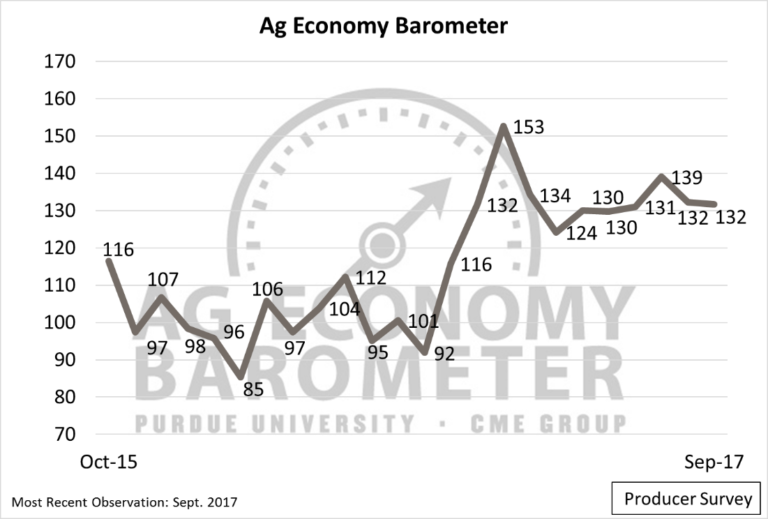
EXPECTATIONS OF AG PRODUCERS ARE LOWER
compared to levels from January 2017, but are consistent with the past six months, according to the Purdue/CME Group Ag Economy Barometer reading from September 2017. According to the report, a decline in the "Future Expectations Index" could signal that some of the optimism that ag producers had shown in late 2016 and early 2017 is beginning to erode. Some of this waning optimism could be attributed to concerns that the U.S. economy and stock market will not continue to strengthen over the next year. To see the full report, click
here
.
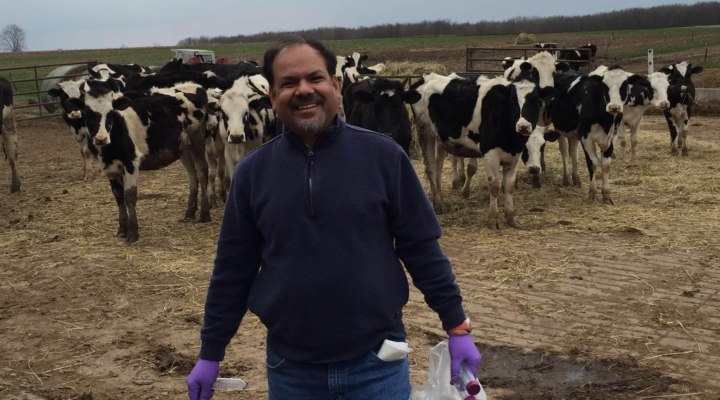
MICROBIAL DIVERSITY ON DAIRY FARMERS MAY CONTRIBUTE
to reduced allergies and autoimmune diseases based on research from the
Marshfield Clinic Research Institute conducted recently. Samples from noses and mouths of dairy farmers and non-farmer office workers in central Wisconsin were collected and analyzed for microbial diversity. The nasal microbiota of dairy farmers had 2.15 fold more organisms when compared to nasal sample of non-farmers. Similarly, the oral samples from the dairy farmers group harbored 1.5 fold more organisms. More research is needed, but scientists are interested in learning more about potential health benefits to farmers and those with more diverse microbiomes. Read more
here
.
|
For your business mind...
HANDLING CRITICAL CONVERSATIONS WELL IS EVEN MORE IMPORTANT
in challenging times. Being able to address issues that are "beyond and between the numbers" with family members, employees, business partners or lenders in a professional and open-minded manner will benefit the farm and everyone involved. Tips for handling critical conversations from a University of Minnesota-Extension blog post include: 
- Minimize the emotion in the conversation
- Choose the right time for the conversation
- Make a very brief list of your expectations
- Prepare yourself to be satisfied with shorter term or interim discussion points
- At the end of the discussions, affirm what you have heard as a way to conclude
To learn more about each of these recommendations, read the full post
here
.
WHY DO EMPLOYEES LEAVE THEIR JOBS?
It is no secret that recruiting, hiring and training replacement employees is a long process that stresses both manager time and the bottom line. Research shows that replacing entry-level employees is typically 30-50% of their annual salary and mid-level employees is 150% of their annual salary. Identifying top reasons that employees leave can help address issues and keep workforce intact. An article in Inc. magazine identified the top 8 management mistakes that lead to employees leaving their jobs: 
1. Not recognizing their employees' unique strengths
2. Poorly communicating with the team
3. Not sharing information
4. Micromanaging
5. Failing to listen
6. Not making themselves available
7. Leading with their egos
8. Not caring about their people
Learn more in the full article here.
|
"Success seems to be connected with action. Successful people keep moving.
They make mistakes, but they don't quit."
-- Conrad Hilton
|
Book review...

IF I UNDERSTOOD YOU, WOULD I HAVE THIS LOOK ON MY FACE?
Actor Alan Alda brings his storytelling and comedy skills to this book where he shares his story of learning how to communicate better. His journey started when he was host of Scientific American Frontiers on PBS where he interviewed thousands of scientists and looked for ways to help them communicate complex ideas to a wider audience.
He shared examples of how communication can be improved through learning to relate to the other person, such as listening with our eyes, looking for clues in another's face, using the power of a compelling story, avoiding jargon, and more.
Learn more
here
.
|
|
A BIG Thank You...
TO OUR PDPW SPONSORS who
support continuous improvement for the dairy industr
y.
T
hey believe in producer leadership and place a high value on lifelong
education for those involved in the dairy industry. We deeply respect their commitment to PDPW and the members we have the honor to serve.
OUR SPONSORS
: Mission, Corporate and Event Sponsors
continue to invest in and build a strong industry. If you interact with any of these companies, please thank them for supporting PDPW!
If you or a company you know is interested in participating as a sponsor, please contact one of our team members at
abonomie@pdpw.org
or call 800-947-7379.
|
|
PDPW Education Calendar
| November 1, 2 |
Milk Quality Conference: Onalaska, Wis. & Fond du Lac, Wis. |
November 6-9
|
Dairy Tours: Blue Ridge Mountains, Virginia |
November 14, 15
|
Feed & Nutrition Conference: Marshfield, Wis. & Arlington, Wis. |
November 22
|
World Class Webinars: Hooves are Made for Walking with Dr. Nigel Cook - "The Fundamentals of Good Hoof Health", Online, 12 pm
|
December 6-7
|
Food & Policy Summit: Madison, Wis.
|
December 12, 13
|
Transition Cow Workshop: Eau Claire, Wis. & Appleton, Wis.
|
December 13
|
Dairy's Visible Voice Series - Media Training: Kewaunee, Wis.
|
|
December 14
|
Dairy's Visible Voice Series - Media Training: Greenwood, WIs.
|
|
January 16-18, 2018
|
Managers Academy for Dairy Professionals: Orlando, Fla.
|
March 13-14, 2018
|
Cornerstone Dairy Academy, Madison, Wis.
|
March 14-15, 2018
|
PDPW Business Conference: "Dairying to Thrive", Madison, Wis.
|
STAY CONNECTED
800-947-7379
|
|
|
|
|